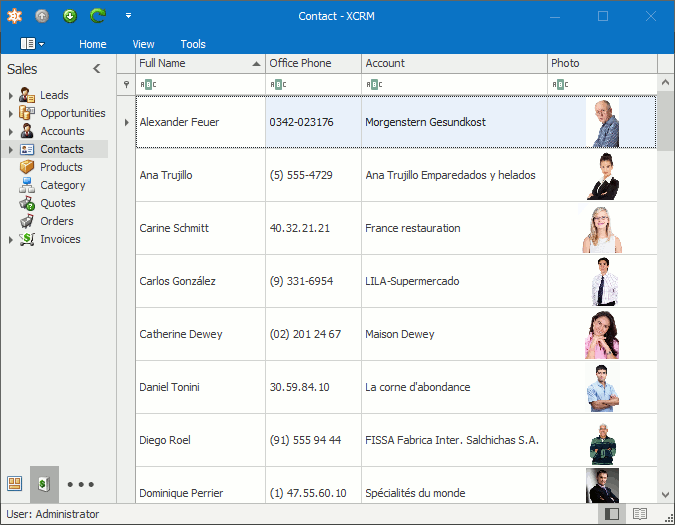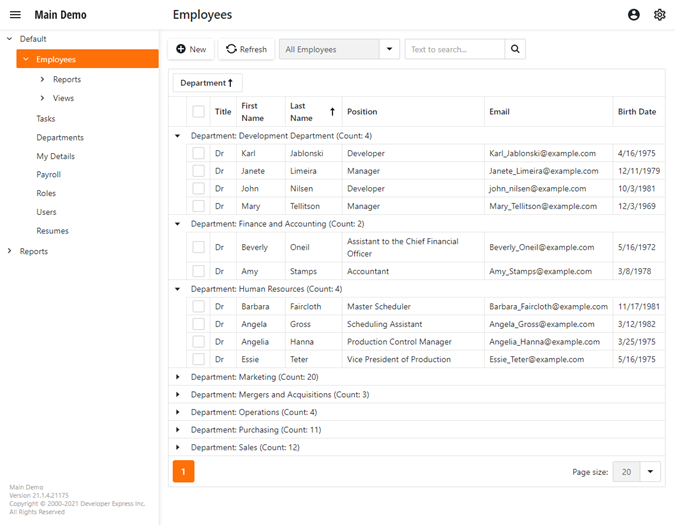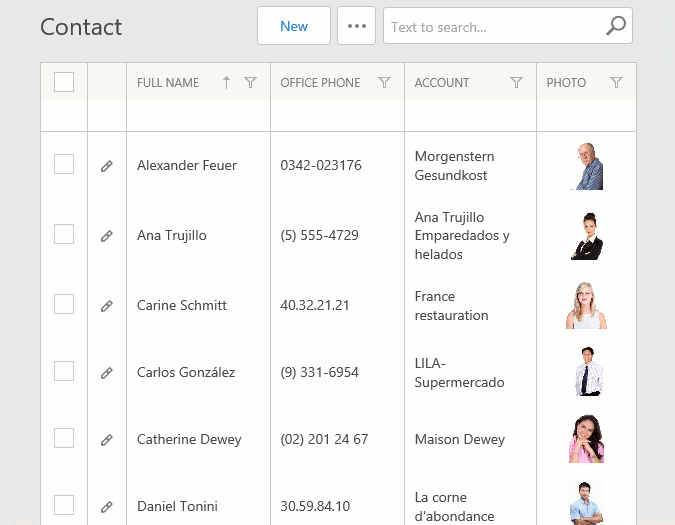ListView Class
Represents a List View.
Namespace: DevExpress.ExpressApp
Assembly: DevExpress.ExpressApp.v24.1.dll
NuGet Package: DevExpress.ExpressApp
Declaration
Remarks
The ListView class allows you to view or edit an objects collection.
List Views take part in the automatic UI construction, so you do not spend time on ListView objects creation. However, you can influence this process by editing the Application Model‘s Views | <ListView> (LookupListView) node. Via this node, you can specify the type of objects to be represented, the columns to be displayed and, order and visibility of these columns.
If you need to customize a List View in code, you can access it via a Frame.View or ViewController.View property. Use a List View’s ObjectView.ObjectTypeInfo property to specify the type of objects to be represented; the ListView.CollectionSource property - to specify the objects and their properties to be displayed. To perform custom actions when an object in a List View’s editor is double-clicked (or clicked in ASP.NET WebForms and Blazor applications), handle the ListViewProcessCurrentObjectController.CustomProcessSelectedItem event.
The ObjectView class, which is the base class for the ListView class, has one more descendant - the DetailView class. This class is used to represent an individual object.


